Don't wanna be here? Send us removal request.
Text
Először az első kb 35 mp-et nézd meg, amíg rá nem bök a nyomozó a tettesre. Aztán nézd meg még egyszer előlről az egész videót.
youtube
64 notes
·
View notes
Text






Rinspeed Presto Concept, 2002. Built by Swiss engineering company Esoro, the Presto was a variable wheelbase prototype. The entire vehicle expands or contracts by 746 mm to seat 2 or 4 or can be turned into a pick-up with the rear seats folded. Based on a Mercedes A-Class, it was presented at the 72nd Geneva Motor Show
215 notes
·
View notes
Text

Autóker store network in Budapest and nationwide! 1979
67 notes
·
View notes
Text





Citroën Urbain II Concept, 1973. Another proposal for a microcar powered by a rear mounted, air-cooled, 602cc flat twin engine driving the rear wheels. The cockpit tilted forward for access. Like the larger DS, the front headlight swivelled with the steering.
Photographs by Perico001 on flickr
645 notes
·
View notes
Text

Budapest. Szabadság-híd Freiheitbrücke Liberty Bridge Hungary
43 notes
·
View notes
Text




Nissan Harlecube, 2009. A special edition of the third generation (Z12) Cube
24K notes
·
View notes
Text
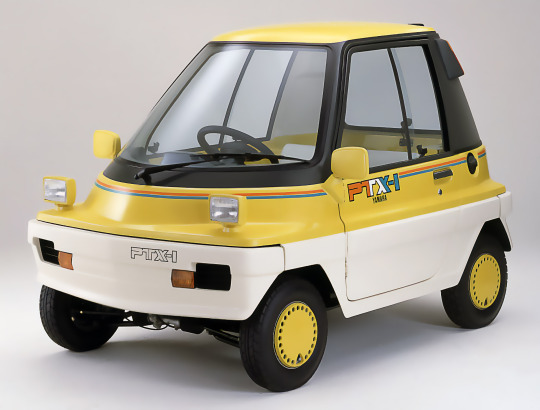
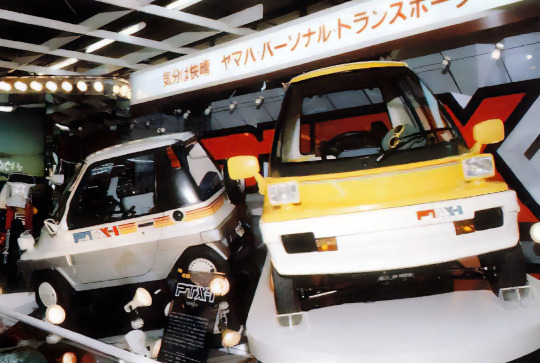
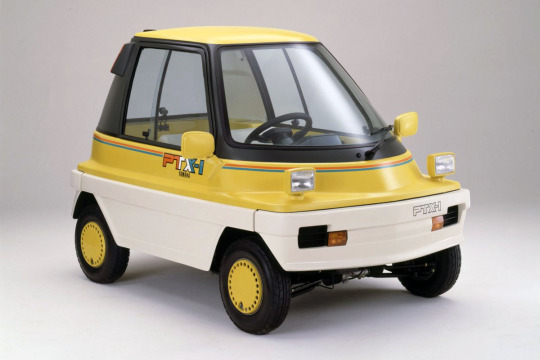
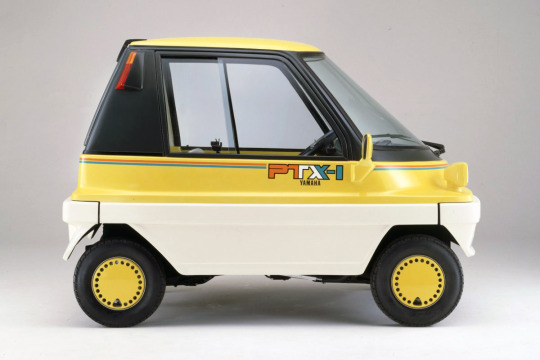
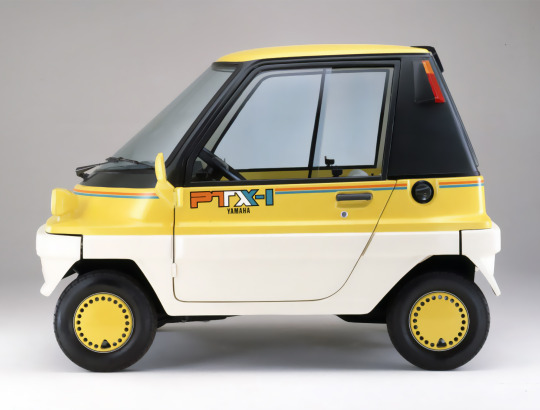
Yamaha PTX-1, 1983. A prototype singe-seat microcar presented at the 25 Tokyo Motor Show (theme: Vehicles, Brighten up, and Growing World). Powered by a single-cylinder 50cc engine and less than 2 metres long it weighed only 165kg (without the driver). Access was via a single door on the left-hand side
2K notes
·
View notes
Photo

Gif animation based on detail of The Temptation of St Anthony by Jacques Callot, 1630.
3K notes
·
View notes
Text




Valmet Eva Range Extender Concept, 2013. Valmet have made cars for Mercedes-Benz, Porsche, Saab, Opel and Talbot since 1968 however there have been no Valmets. The Eva was a small electric car proposal, the range extender version had a rear-mounted rotary engine that could run on diesel or gasoline and with modifications on liquid gas, natural gas or hydrogen. The 350cc rotary engine was made by Wankel SuperTec and gave the Eva a range of up to 580km. However the Eva didn't progress beyond the prototype phase
79 notes
·
View notes
Text

Guardian teddy, 1940. From the Budapest Municipal Photography Company archive.
42 notes
·
View notes
Text

Standard factory pavilion, Budapest international fair, 1940. From the Budapest Municipal Photography Company archive.
65 notes
·
View notes
Text





Citroën AmiHY, 2024, by Caselani. The Italian coachbuilder has made a bodykit for the Citroën Ami electric quadricycle that converts it to resemble Citroën's historic HY van.
625 notes
·
View notes
Text

The zoological collection of the Archbishop's High School, Kalocsa, 1938. From the Budapest Municipal Photography Company archive.
127 notes
·
View notes
Text


Your body is an incredibly bizarre machine.
“What you see is a myosin protein dragging an endorphin along a filament to the inner part of the brain’s parietal cortex which creates happiness. Happiness. You’re looking at happiness.”
748 notes
·
View notes
Text


Delfin, 1972. A concept from Tajikistan based on the Russian ZAZ 965. The cutaway reveals a rear engine, which is most likely the 746cc air-cooled V4 engine from the ZAZ. The Delfin (Дельфин/dolphin) was an open roof cabriolet concept but it appears to have got no further than these few drawings.
171 notes
·
View notes

